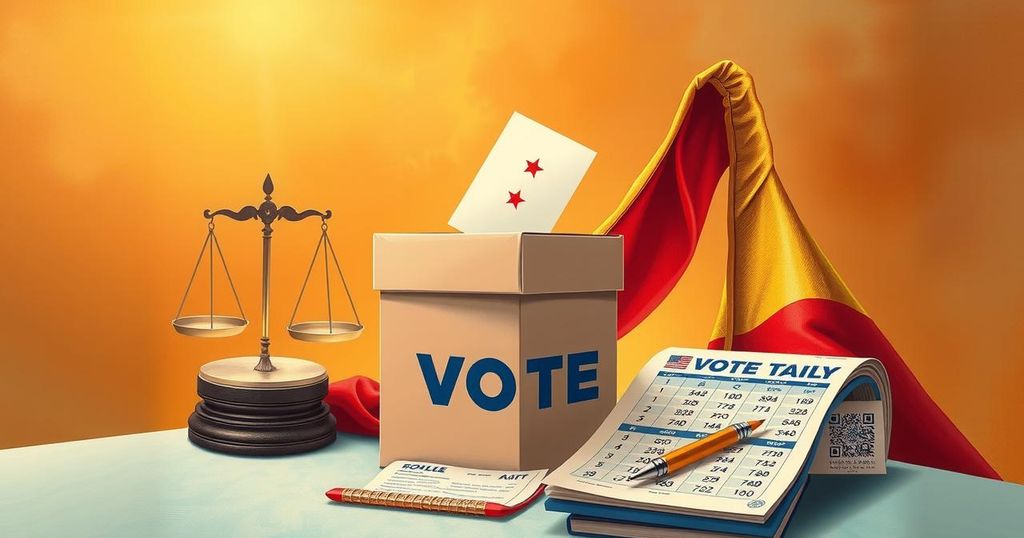A new Gender Links report reveals that Botswana, despite its democratic reputation, is experiencing significant democratic erosion regarding women’s participation in politics, marked by a decline in parliamentary representation and media coverage during elections.
Botswana, historically recognized for its stable democracy in Sub-Saharan Africa, currently faces democratic erosion regarding women’s political participation. A recent study by Gender Links illustrates this decline, revealing that despite the recent election of a new government, women’s representation in political decision-making has significantly diminished, prompting critical inquiries about democracy itself.
As Batswana and the international community celebrated the victory of the Umbrella for Democratic Change (UDC), the report highlighted a disheartening reality: only three out of 28 women candidates successfully secured seats in the National Assembly. Consequently, women’s parliamentary representation plummeted to 8.7%, the lowest among Southern African Development Community (SADC) countries, at a time when global efforts prioritize equal representation of women in political affairs.
The audit indicates a persistent decline in women’s representation at local levels, currently standing at a mere 15%. However, there is a slight uptick in the percentage of women in cabinet positions, rising from 17% to 22%, suggesting a commitment from the new administration to foster change. The study emphasizes that this drop in women’s representation marks the first instance in which Botswana has a single female assistant minister.
Overall, the 2024 elections illustrated more setbacks than progress regarding women’s political representation. Mabetha Manteboheleng from Gender Links remarked that the results underscore the ongoing struggle for gender equality, noting that media coverage failed to amplify women’s voices during crucial election processes.
Conducted under the Enhancing the Inclusion of Women in Political Participation (WPP) in Africa project, the gender audit focused on capacity building through training academies, mentoring, and inter-generational dialogue, involving over 100 women politicians from various political parties. Despite increased participation—with 14 women candidates contesting—only one secured a parliamentary seat, alongside five council positions.
Furthermore, a media monitoring project highlighted severe gender imbalance in election coverage, revealing that women constituted a mere 4% of news sources. This disproportionate representation perpetuates the silencing of women’s voices, thus undermining democratic inclusivity. Colleen Lowe Morna pointed out that this outcome is the worst observed in over twenty years of gender and media monitoring across Southern Africa.
In conclusion, Botswana’s democratic framework presently reveals concerning trends in women’s political participation, with substantial declines noted in parliamentary and local government representation. The incremental increase in women candidates does not correlate with successful electoral outcomes, indicating deeper systemic issues. The media’s significant under-representation of women during elections further exacerbates these challenges, calling for sustained efforts towards enhancing gender equality in politics and representation.
Original Source: allafrica.com




